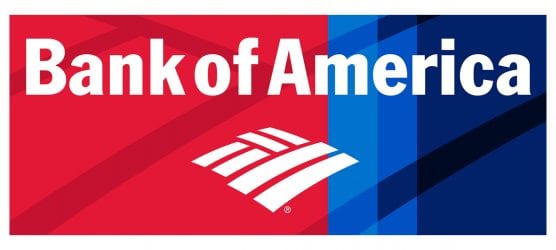SAN FRANCISCO — A federal class action filed Friday claims Bank of America failed to secure debit cards containing unemployment benefits for millions of Californians, leading to widespread fraud and making some cardholders unable to access needed funds during a pandemic.
Bank of America has an exclusive contract with California’s Employment Development Department (EDD) to dole out benefits in the form of debit cards. In recent months, many recipients found money suddenly drained from their accounts without warning.
Facing an unprecedented onslaught of fraud this past October, Bank of America froze an estimated 350,000 unemployment benefit accounts. By late November, less than 8% of those accounts had been reactivated, according to the lawsuit.
The lawsuit claims Bank of America failed to follow industry security standards and issued “outdated, fraud-prone” magnetic-strip debit cards instead of cards with more secure EVM (Europay, MasterCard and Visa) chip technology.
Bank of America has used EVM chip cards since 2014, but it “opted to issue hundreds of thousands of EDD cards with magnetic stripe technology, which when used at payment terminals openly transmit sensitive card and account information and leave cardholders vulnerable to fraud.”
Those whose unemployment benefits vanished found little help from Bank of America’s customer service agents when they tried to contact the bank, the lawsuit alleges.
“Defrauded EDD cardholders have been forced to wait weeks or longer without any access to their EDD benefits because Bank of America makes it unreasonably difficult to file their claims, which (even if filed) can languish before the claim’s investigation ever occurs,” the 67-page complaint states.
Lead plaintiff Jennifer Yick of San Francisco tried for over a month to get help through the bank’s fraud hotline. She repeatedly waited on hold for hours before getting disconnected. At times, she was forced to leave voicemails or interact with non-human, automated voices, according to her complaint.
Bank of America advertises its 24/7 customer service phone line, but when Yick finally got an agent on the phone after several days of trying, he told her she would need to call the claims department during regular business hours. She called three times the next day, waited on hold, only to have the system hang up on her each time, according to the lawsuit.
A phone agent later told her to send an email with her claim information, but the email came back as undeliverable. She tried to send an email to the same address two weeks later and got the same result.
“Plaintiff has followed the instructions in her account agreement, and made consistent, diligent efforts to recover the funds stolen from her account by multiple telephone calls and email,” the complaint states. “In spite of this, Bank of America’s customer service department offered Plaintiff no meaningful response or assistance, and indeed has stymied her efforts at nearly every turn.”
Bombarded with complaints from defrauded constituents, 59 lawmakers sent a letter to the bank’s CEO Brian Moynihan this past November stating that cardholders “are unable to get through to your call centers, or when they do, the issue is not resolved.”
The bank’s agreement with California guarantees cardholders “no liability” for unauthorized transactions. It also vows to investigate fraud claims within 10 business days or up to 45 days if more time is needed. The bank says it will credit a cardholder’s account within 10 days if an investigation takes longer than 10 business days.
Despite those promises, Yick’s lawsuit accuses Bank of America of violating its contract with cardholders and violating California consumer protection laws.
The proposed class of defrauded cardholders seeks full refunds of money drained from their accounts. They want the bank to issue cards with more secure EVM chip technology and to establish a dedicated customer service website, phone number and email address for California unemployment beneficiaries. They further demand that the bank responds to all cardholders’ fraud claims within a reasonable time.
Yick also seeks punitive damages for the proposed class. She is represented by attorney Brian Danitz of Cotchett, Pitre & McCarthy in Burlingame, California.
In an emailed statement, Bank of America spokesman William “Bill” Halldin said California’s unemployment program currently faces billions of dollars in fraud. He said the bank is working diligently with the state to prevent criminals from stealing money and to ensure legitimate recipients receive their benefits.
“We have added thousands of agents to answer phone calls and investigate claims for the areas of the program we are responsible for and, as a result, our average wait time for callers has dropped dramatically,” Halldin said. “While the vast majority of unemployment fraud is committed by those filing false applications when fraudulent transactions occur on benefit cards we review those claims and restore money to legitimate recipients.”
In recent months, the state has acknowledged a massive fraud scheme in which scammers and prisoners, including death row inmates, filed claims to receive more than $400,000 in unemployment benefits that they were not entitled to.
— By Nicholas Iovino, CNS
Like this:
Like Loading...
Related





 Tweet This
Tweet This Facebook
Facebook Digg This
Digg This Bookmark
Bookmark Stumble
Stumble RSS
RSS


























REAL NAMES ONLY: All posters must use their real individual or business name. This applies equally to Twitter account holders who use a nickname.
3 Comments
When one as old as I am can remember that Bank of America supported the war in Viet Nam against the US.
How int he hell did they get the contract. Probably a Newsom deal. Likely he reaps rewards for such.
How Do I submit a claim
They stole my money